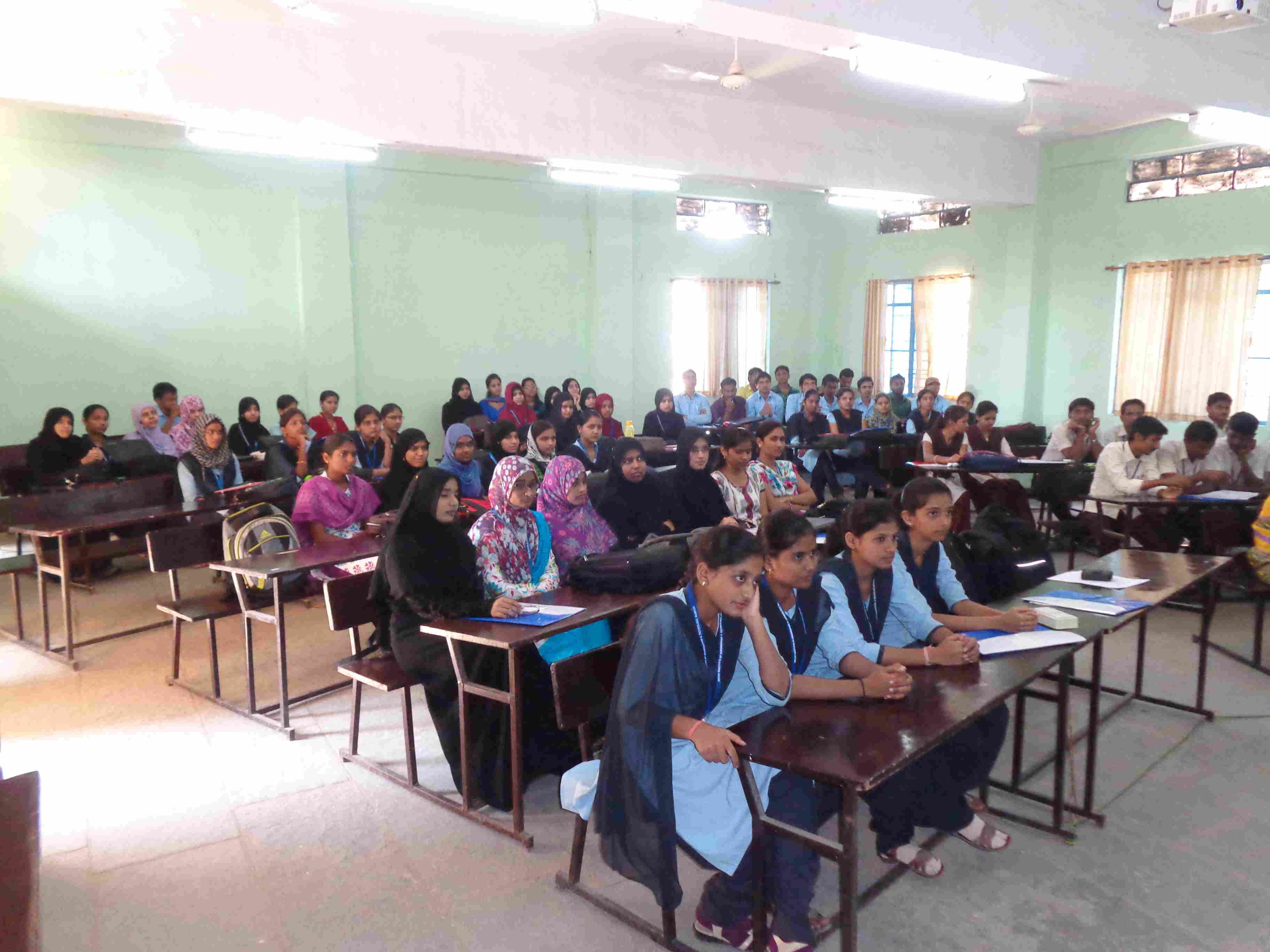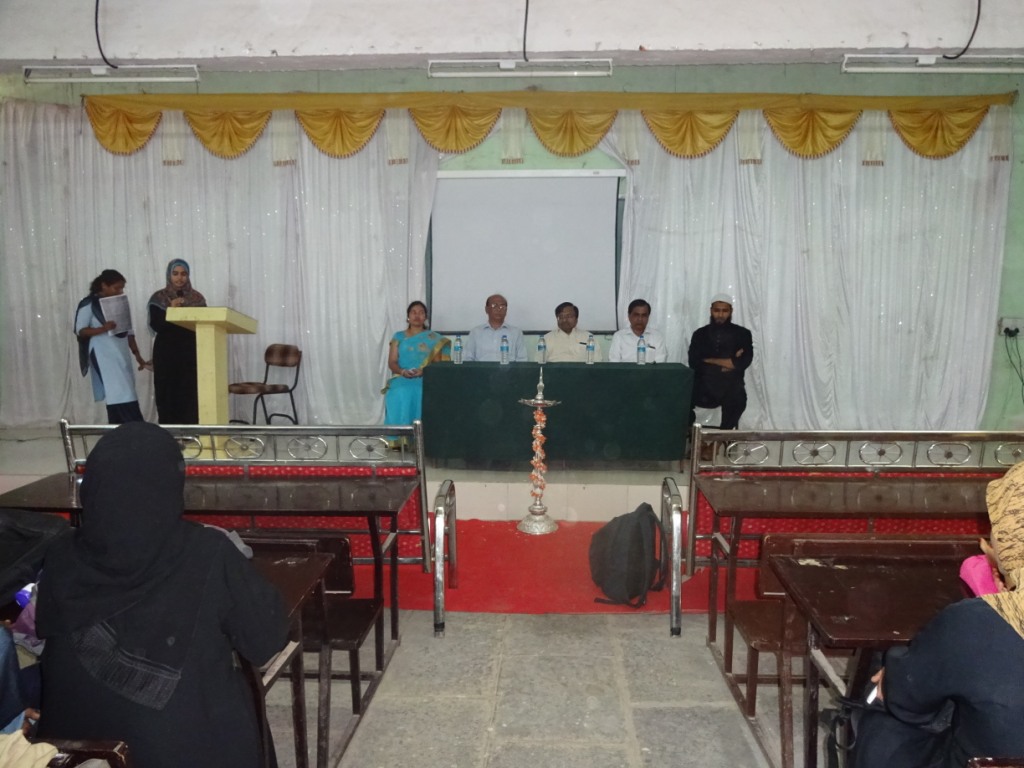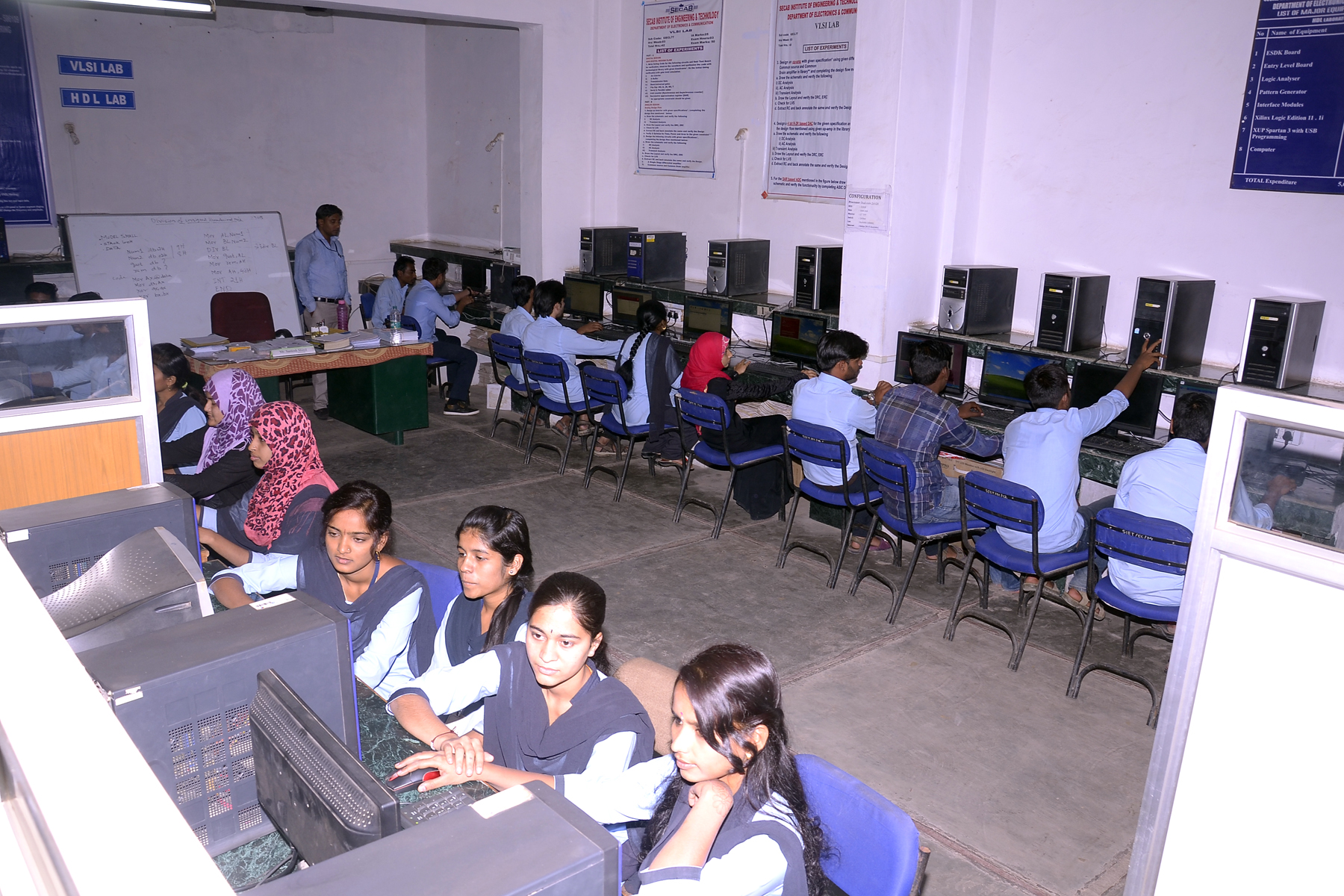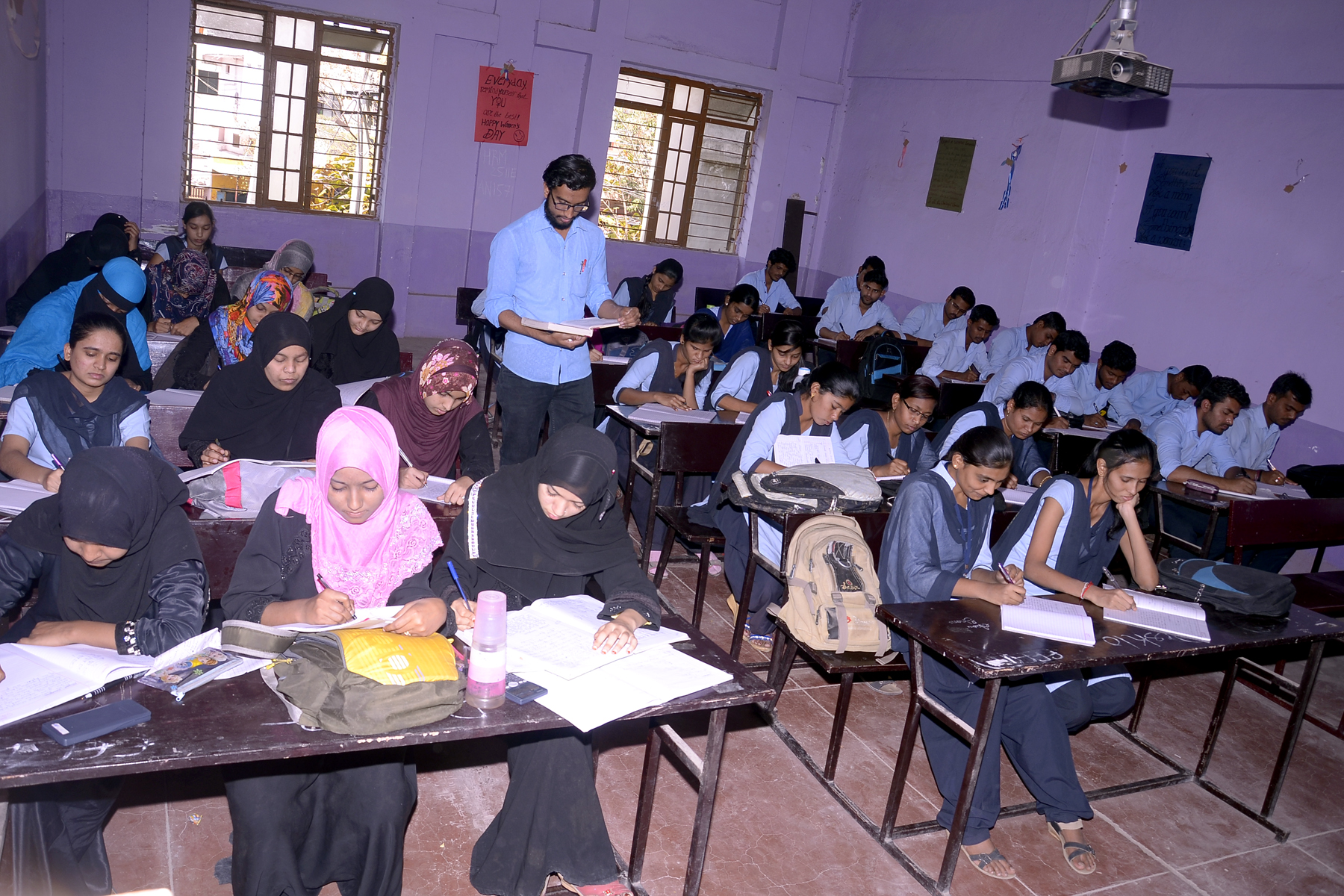
Overview
I feel ecstatic to introduce you to the Department of Electronics and Communication Engineering. Department of Electronics & Communication Engineering of S.I.E.T was established in the year 2002 with an intake of 60.
Department of Electronics and Communication Engineering strives for increasing the knowledge, enhancing the critical thinking, ability to change information into knowledge and power of analyzing the things technically of each and every student in the ever changing society.We also intend to impart knowledge through a closed knit family of highly competent faculty. Our Laboratories have been very well established not only to cover complete syllabus but to motivate students to learn beyond the syllabus which definitely develops complete knowledge of the subject (both the practical and theoretical) and develop skill sets of students to become promising engineers in future.
The department organizes Seminars, workshops/colloquia, guest lectures on recent trends & Technology. The department also organizes industrial visits for students periodically to provide an opportunity for the students to interact with working professionals from industry. We send students for internship programs which provides an opportunity to the students to have a feel of real on sight situations in the industries and how to handle them. It is firmly believed that the prestigious position of this department will be maintained and upheld by our students along with whole hearted and sincere efforts of all the members of the department.
Vision:
To develop professionally competent and socially responsible Electronics and Communication Engineers.
Mission:
We, the Department of Electronics and Communication Engineering are committed to achieve our vision by:
- Strengthening core competencies among the learners through outcome-based education.
- Imparting technical skills by conducting hands-on training programs/workshops on Emerging technologies.
- Producing graduates with societal responsibilities.
- To Involving stakeholders in development of the department.
Programme Educational Objectives (PEOs)
- PEO 1: Apply the knowledge of Electronics and Communication Engineering to analyze and solve Engineering problems.
- PEO 2: Acquire core competency for successful adaptation to emerging technological developments.
- PEO 3: Inculcate professionalism to solve societal and environmental issues.
- PEO 4: Develop lifelong learning attitude by involving stakeholders.
Programme outcome (POs)
- PO 1: Engineering knowledge: An ability to apply basic knowledge of science, mathematics and engineering fundamentals in the field of Electronics and Communication Engineering.
- PO 2: Problem analysis: Ability to identify, formulate and analyze Electronics and Communication engineering problems using basics principles of science, mathematics, and engineering.
- PO 3: Design/development of solutions: An ability to design for complex Electronics and Communication engineering problems using basic design concepts, analyze and process to meet the desired needs within realistic constraints such as manufacturability, durability, and economy with appropriate consideration for the public health, safety, cultural, societal, and environmental considerations.
- PO 4: Conduct investigations of complex problems: An ability to conduct experiments, analyze, interpret the data and results with a valid conclusion.
- PO 5: Modern tool usage: An ability to apply modern tools to model, design, analyze, verify and to solve complex Electronics and Communication engineering problems.
- PO 6: The Engineer and Society: Ability to understand the impact of Electronics and Communication engineering solutions globally, in terms economic, societal, health, safety, legal and cultural issues and the consequent responsibilities relevant to the professional engineering practice.
- PO 7: Environment and sustainability: An ability to understand the principles, commitment and practice to improve product sustainable development globally in Electronics and Communication engineering with minimal environmental effect.
- PO 8: Ethics: An ability to understand and apply ethical principles and commitment to address professional and ethical responsibilities of an engineer.
- PO 9: Individual and team work: An ability to function efficiently as an individual and as a group member in a team in multidisciplinary activities.
- PO 10: Communication: An ability to communicate instructions for preparing effective reports and documentation.
- PO 11: Project management and finance: An ability to acquire and demonstrate the knowledge of contemporary issues related to managing finance and managerial skills in order to become successful entrepreneurs.
- PO 12: Lifelong learning: Ability to recognize and adapt to emerging field of application in engineering and technology by developing self-confidence for continuing education and lifelong learning process.
Programme Specific Outcomes (PSOs)
- PSO 1: Specify, Design, Build and Test analog, digital and embedded system for signal processing.
- PSO 2: Understand and architect wired and wireless analog and digital communication systems as per specifications, and determine their performance.



